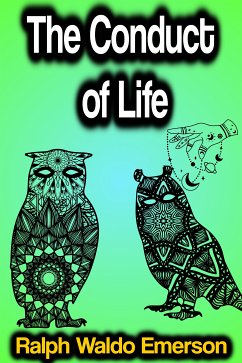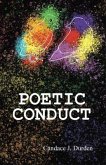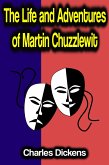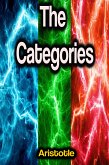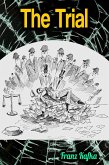Ralph Waldo Emerson
The Conduct of Life (eBook, ePUB)
3,49 €
3,49 €
inkl. MwSt.
Sofort per Download lieferbar

0 °P sammeln
3,49 €
Als Download kaufen

3,49 €
inkl. MwSt.
Sofort per Download lieferbar

0 °P sammeln
Jetzt verschenken
Alle Infos zum eBook verschenken
3,49 €
inkl. MwSt.
Sofort per Download lieferbar
Alle Infos zum eBook verschenken

0 °P sammeln
Ralph Waldo Emerson
The Conduct of Life (eBook, ePUB)
- Format: ePub
- Merkliste
- Auf die Merkliste
- Bewerten Bewerten
- Teilen
- Produkt teilen
- Produkterinnerung
- Produkterinnerung

Bitte loggen Sie sich zunächst in Ihr Kundenkonto ein oder registrieren Sie sich bei
bücher.de, um das eBook-Abo tolino select nutzen zu können.
Hier können Sie sich einloggen
Hier können Sie sich einloggen
Sie sind bereits eingeloggt. Klicken Sie auf 2. tolino select Abo, um fortzufahren.

Bitte loggen Sie sich zunächst in Ihr Kundenkonto ein oder registrieren Sie sich bei bücher.de, um das eBook-Abo tolino select nutzen zu können.
The Conduct of Life Ralph Waldo Emerson - The Conduct of Life is a collection of essays by Ralph Waldo Emerson published in 1860 and revised in 1876. In this volume, Emerson sets out to answer "the question of the times:" "How shall I live?" It is composed of nine essays, each preceded by a poem
- Geräte: eReader
- ohne Kopierschutz
- eBook Hilfe
- Größe: 0.75MB
- FamilySharing(5)
Andere Kunden interessierten sich auch für
![Poetic Conduct (eBook, ePUB) Poetic Conduct (eBook, ePUB)]() Candace J. DurdenPoetic Conduct (eBook, ePUB)5,99 €
Candace J. DurdenPoetic Conduct (eBook, ePUB)5,99 €![The Life and Adventures of Martin Chuzzlewit (eBook, ePUB) The Life and Adventures of Martin Chuzzlewit (eBook, ePUB)]() Charles DickensThe Life and Adventures of Martin Chuzzlewit (eBook, ePUB)9,99 €
Charles DickensThe Life and Adventures of Martin Chuzzlewit (eBook, ePUB)9,99 €![The Life and Adventures of Santa Claus (eBook, ePUB) The Life and Adventures of Santa Claus (eBook, ePUB)]() L. Frank BaumThe Life and Adventures of Santa Claus (eBook, ePUB)4,49 €
L. Frank BaumThe Life and Adventures of Santa Claus (eBook, ePUB)4,49 €![The Categories (eBook, ePUB) The Categories (eBook, ePUB)]() AristotleThe Categories (eBook, ePUB)4,49 €
AristotleThe Categories (eBook, ePUB)4,49 €![The Dark Star (eBook, ePUB) The Dark Star (eBook, ePUB)]() Robert William ChambersThe Dark Star (eBook, ePUB)3,49 €
Robert William ChambersThe Dark Star (eBook, ePUB)3,49 €![Tess of the d'Urbervilles - Thomas Hardy (eBook, ePUB) Tess of the d'Urbervilles - Thomas Hardy (eBook, ePUB)]() Thomas HardyTess of the d'Urbervilles - Thomas Hardy (eBook, ePUB)3,49 €
Thomas HardyTess of the d'Urbervilles - Thomas Hardy (eBook, ePUB)3,49 €![The Trial - Franz Kafka (eBook, ePUB) The Trial - Franz Kafka (eBook, ePUB)]() Franz KafkaThe Trial - Franz Kafka (eBook, ePUB)3,49 €
Franz KafkaThe Trial - Franz Kafka (eBook, ePUB)3,49 €-
-
-
The Conduct of Life Ralph Waldo Emerson - The Conduct of Life is a collection of essays by Ralph Waldo Emerson published in 1860 and revised in 1876. In this volume, Emerson sets out to answer "the question of the times:" "How shall I live?" It is composed of nine essays, each preceded by a poem
Dieser Download kann aus rechtlichen Gründen nur mit Rechnungsadresse in A, B, BG, CY, CZ, D, DK, EW, E, FIN, F, GR, H, IRL, I, LT, L, LR, M, NL, PL, P, R, S, SLO, SK ausgeliefert werden.
Produktdetails
- Produktdetails
- Verlag: Phoemixx Classics Ebooks
- Seitenzahl: 277
- Altersempfehlung: ab 13 Jahre
- Erscheinungstermin: 27. September 2021
- Englisch
- ISBN-13: 9783986470753
- Artikelnr.: 62639627
- Verlag: Phoemixx Classics Ebooks
- Seitenzahl: 277
- Altersempfehlung: ab 13 Jahre
- Erscheinungstermin: 27. September 2021
- Englisch
- ISBN-13: 9783986470753
- Artikelnr.: 62639627
- Herstellerkennzeichnung Die Herstellerinformationen sind derzeit nicht verfügbar.
In 1803, Ralph Waldo Emerson was born in Boston. Educated at Harvard and the Cambridge Divinity School, he became a Unitarian minister in 1826 at the Second Church Unitarian. The congregation, with Christian overtones, issued communion, something Emerson refused to do. "Really, it is beyond my comprehension," Emerson once said, when asked by a seminary professor whether he believed in God. (Quoted in 2,000 Years of Freethought edited by Jim Haught.) By 1832, after the untimely death of his first wife, Emerson cut loose from Unitarianism. During a year-long trip to Europe, Emerson became acquainted with such intelligentsia as British writer Thomas Carlyle, and poets Wordsworth and Coleridge. He returned to the United States in 1833, to a life as poet, writer and lecturer. Emerson inspired Transcendentalism, although never adopting the label himself. He rejected traditional ideas of deity in favor of an "Over-Soul" or "Form of Good," ideas which were considered highly heretical. His books include Nature (1836), The American Scholar (1837), Divinity School Address (1838), Essays, 2 vol. (1841, 1844), Nature, Addresses and Lectures (1849), and three volumes of poetry. Margaret Fuller became one of his "disciples," as did Henry David Thoreau.The best of Emerson's rather wordy writing survives as epigrams, such as the famous: "A foolish consistency is the hobgoblin of little minds, adored by little statesmen and philosophers and divines." Other one- (and two-) liners include: "As men's prayers are a disease of the will, so are their creeds a disease of the intellect" (Self-Reliance, 1841). "The most tedious of all discourses are on the subject of the Supreme Being" (Journal, 1836). "The word miracle, as pronounced by Christian churches, gives a false impression; it is a monster. It is not one with the blowing clover and the falling rain" (Address to Harvard Divinity College, July 15, 1838). He demolished the right wing hypocrites of his era in his essay "Worship": ". . . the louder he talked of his honor, the faster we counted our spoons" (Conduct of Life, 1860). "I hate this shallow Americanism which hopes to get rich by credit, to get knowledge by raps on midnight tables, to learn the economy of the mind by phrenology, or skill without study, or mastery without apprenticeship" (Self-Reliance). "The first and last lesson of religion is, 'The things that are seen are temporal; the things that are not seen are eternal.' It puts an affront upon nature" (English Traits , 1856). "The god of the cannibals will be a cannibal, of the crusaders a crusader, and of the merchants a merchant." (Civilization, 1862). He influenced generations of Americans, from his friend Henry David Thoreau to John Dewey, and in Europe, Friedrich Nietzsche, who takes up such Emersonian themes as power, fate, the uses of poetry and history, and the critique of Christianity. D. 1882.Ralph Waldo Emerson was his son and Waldo Emerson Forbes, his grandson.
